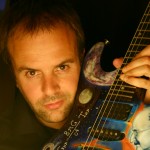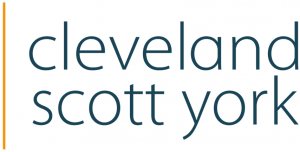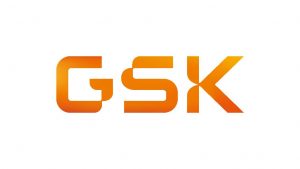Dr Mark Lewney combines his passion for science with legal rigour as a patent examiner, and also with his love of music as a touring lecturer on the subject of guitar physics.
‘Science is either physics or stamp collecting’ said Ernest Rutherford (possibly). It never occurred to me to study any subject other than physics. Why bother with anything less fundamental? My PhD in guitar acoustics fused my two great loves, and then I was faced with the dilemma common to all new doctorates: Either stay in your own narrow field and go anywhere in the world, or stay in your geographical area and seek a profession which uses those skills more generally.
Why I pursued a career as a patent examiner
Having opted for the second choice, I knew that the Intellectual Property Office in Newport was a significant brain drain on Cardiff University. Many of my under- and postgraduate friends are now my Office colleagues.
The Intellectual Property Office is the official government body responsible for intellectual property (IP) rights including patents, designs, trade marks and copyright, and is an executive agency sponsored by the Department for Business, Innovation & Skills. The difference between my job and a private patent attorney is that I am a Civil Servant with the power to grant or reject patent applications in accordance with the law, whereas a private attorney acts for his or her client in pursuit of such a grant.
After a brief training stint on air conditioning patents, I volunteered to take on telecoms, an altogether more challenging subject. A cryptography case requiring careful reading of academic papers full of complex mathematics may be followed by one concerning a packet-switching protocol in terminology so vague that one barely knows what to search for.
The nature of the job requires intense concentration, but there are very few time-sensitive crises in which a case absolutely must be dealt with by the end of the day, and such low-stress brainwork suits this side of my personality very well. However, in 2005 I won a national science presenter competition called FameLab® with my explanation of the physics of rock guitar, and the Office were very understanding in allowing me to go part-time in order to exploit this opportunity to let out my inner performer (some colleagues would say ‘clown’).
Qualifications and training
The Office welcomes qualified professionals from all areas of science, but electronic engineers and those with computing or telecoms experience are particularly sought after. My expertise in signal processing and mathematics grounded me in the fundamentals of transmission and reception but I had to absorb a great deal of technical material relating specifically to telecoms on-the-job, as well as learning the legal intricacies of Patent Law on which our decisions about whether or not to grant a valid patent are based.
Training in both of these requirements was extensive and varied. The technical side included attendance at university MSc lectures, Open University materials and invitations to visiting speakers to train the examining group in-house for several days. The legal side included in-house presentations from senior patent examiners, several days a year solely to study the arcane lore of the Manual of Patent Practice, and in my case funding to complete a Masters in IP Law, which reinvigorated the academic in me which had lain dormant since university. This course, run by what is now the University of South Wales, introduced me to all the other areas of IP which the Office deals with and allowed me to explore computer program patents – a hugely tricky legal area – in great depth as the focus of a full dissertation.
My current role
I continue to work on telecoms patents and take keen interest in the numerous court cases around the world which pepper the news so liberally. I have also recently taken over responsibility for slightly different subject matter – speech recognition – which is becoming ever more significant as people increasingly talk to their phones via Siri®, S Voice® and Google Now®.
My balance of work and family life has also recently shifted in my favour with the introduction of homeworking, for which the Office is something of a Civil Service flagship. I can clock in remotely in the morning, clock out to take the boys to school, clock back in for 6 hours, pick them up, play footie in the park, fix their dinner and then do another hour in the evening to make a full day. The 90+ minutes per day lost to the commute from Cardiff to Newport is now a price I can choose to pay, or not, depending on whether I want to chat to some colleagues and use the gym.
My guitar physics lectures also continue, and in recent years I have had the pleasure of performing in Tokyo, Seattle, Bulgaria, Spain and the highlight of any guitarist’s life: Montreux Jazz Festival, all with the Office’s enlightened approval since encouraging wider interest in science and technology is one of their outreach remits.
These presentation skills are also put to good use by the Office in the IP Masterclass, a 3 day course for people looking for an introduction to IP, and I’m happy to do the odd stint as the Rock Doctor on World IP day or the Cracking Ideas competition which the Office runs for school students.







